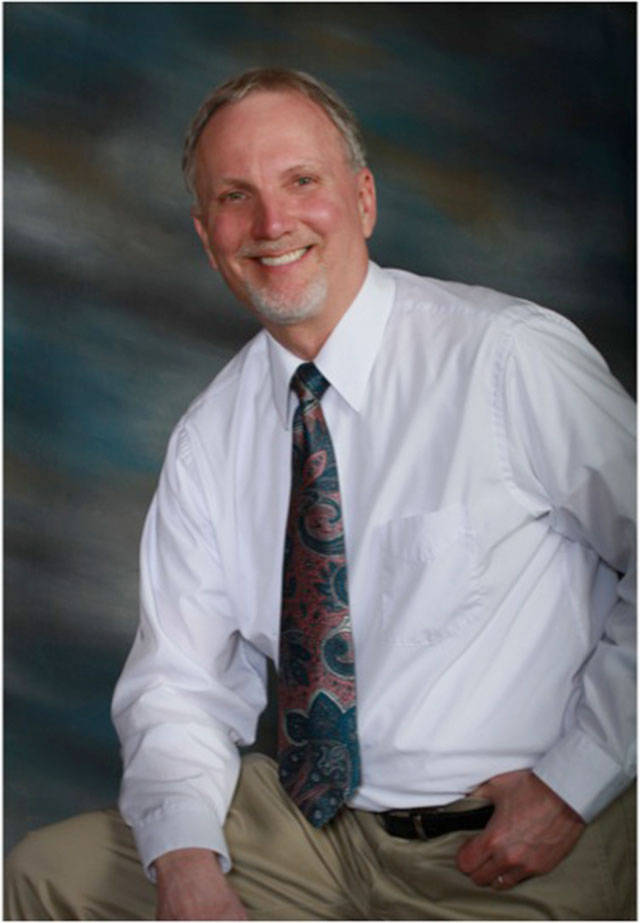The definition of conspiracy theory: “A theory seeking to explain a disputed case or matter as a plot by a secret group or alliance rather than an individual or isolated act” (wordnik.com).
We are living in a time of multiple conspiracy theories. I recently had a conversation with a man who believed that several conspiracies were afoot. He believed that HAARP (High-frequency Active Auroral Research Program) was being used to cause changes in weather patterns.
HAARP was originally developed to study the ionosphere to see if it could be used to improve radio technology and surveillance. The man believed that higher temperatures and weather events were being used to increase the power of the government and to take away our rights and freedoms.
COVID-19 was also part of a plot to control us and shift power to the government. COVID-19 vaccinations really were produced to kill all who received them. Since I had already been vaccinated, the only cure for me was hydroxychloroquine or some other chemical. The better choice would have been to not be vaccinated. (Perhaps vaccinations have hit a wall of resistance in part because of this conspiracy theory.)
Understanding why conspiracy theories have multiplied in our times helps us to both explain their power and to make us aware that we are all capable of being infected by them. According to John Sides in a 2/19/2015 story in the Washington Post entitled “Fifty Percent of Americans Believe in Some Conspiracy Theory. Here’s Why.”, these beliefs are not limited to the far right, nor are they held solely by paranoid loners.
Some conspiracy theories turn out to be correct, as in the case of the Watergate break-in of the Democratic headquarters in Washington, D. C. in 1972. The break-in was the result of a conspiracy. The break-in is a fact.
Why do conspiracy theories arise? According to Sides, they’re types of magical thinking. People engage in them “in order to cope with difficult emotions”. These emotions are triggered by “some inexplicable or unusual event.” To bring order to our lives and “to restore our emotional equilibrium”, we search for patterns to explain the event. True believers search out explanations that “may feel more intuitively compelling than other explanations, particularly to people in distress.”
Research has shown that conspiracy theories are more common among the less educated. These conspiracy theorists tend to be less trusting of others and are skeptical of the political mainstream.
These beliefs are “simply tools we use to make sense of the world…. Conspiracy theories flourish when there is a vacuum of accepted political authority. When people don’t trust their political leaders or institutions, they feel naturally uneasy and then look to alternative explanations for unusual events.”
According to “A History of Conspiracy Theories” published by the Simmons College Library, conspiracy theories proliferate during times of “…societal upheaval and traumatic events that call into question established power structures, norms of conduct, or even the existence of specific people or groups ‘tend to stimulate belief in conspiracy theories.’”
The Black Lives Matter movement, the push for LGBTQ rights, and the COVID-19 pandemic come to mind as examples of social upheaval. The January 6 insurrection is certainly an example of a traumatic event that challenged established constitutional power structures and norms of conduct.
Donald Trump, while president and after, has continued to endorse conspiracy theories and “The Big Lie” that the election was stolen. All of these events and people have played a major part in the rise of conspiracy theories like the ones noted at the beginning of this column.
It’s not entirely accurate to stereotype conservatives as a group that distrusts science. This only applies if it is connected to their perception that government is trying to control them. Conservatives love science when dealing with nuclear weapons, innovation, and winning the space race. When they associate it with the EPA, government regulation, and global institutions, they distrust it.
Progressives point out that it’s the conservatives who gravitate toward conspiracy theories, and research shows that is largely true. Still, some progressives see “Big Oil” as conspiring to deny climate change. They see “Big Oil” as blocking alternative energy sources when in fact, several major corporations are already moving away from “The Age of Petroleum”, seeing the handwriting on the wall.
“On balance, partisanship may influence which conspiracy theories we see, but not how often we are likely to see them” (Moore, Alfred, et al. “Conspiracy Theories Aren’t Just for Conservatives” Washington Post 8/21/2014).
The way to end conspiracy theories is to become aware that we humans are not always rational. Fear often overrides our ability to reason; to discern between fact and opinion. We are all capable of becoming infected. Self-awareness, discernment, and humility are the antidotes.


